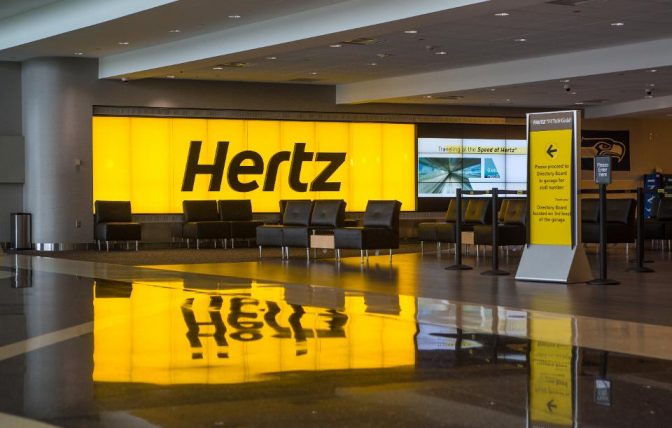

Hertz Global Holdings, Inc., the second-largest U.S. car rental company, has found itself in a financially distressed position due to a halt in the travel industry prompted by the COVID-19 pandemic. On May 22, Hertz and some of its U.S. and Canadian subsidiaries filed voluntary petitions for reorganization under Chapter 11 in the U.S. Bankruptcy Court for the District of Delaware.
The company has operations all over the world, but the bankruptcy will focus on its U.S. and Canadian assets. With air travel down more than 90 percent, the rental car business has taken a beating. Hertz currently has more than 500,000 cars in service across the U.S. under the brands Hertz, Thrifty, Dollar, and Firefly.
The company has already laid off thousands of employees and sold off 54,000 of the cars in its inventory. Bankruptcy will give the publicly-traded company more flexibility to negotiate with creditors. In the meantime, Hertz says it will continue to honor reservations, offers, and customer loyalty programs. Cars will be sanitized according to the “Hertz Gold Standard Clean,” a new program implemented at the beginning of the pandemic.
The slowdown in car rentals due to COVID-19 is expected to cause ripples across the auto industry. The decrease in rental business has caused all rental car companies to cancel orders for new cars and sell existing inventories. Avis Budget sold 35,000 of its cars in March and canceled 80 percent of orders for the rest of 2020. Decreases in fleet sales may face automakers to raise prices for the consumer.
Unfortunately, a glut of used cars could push used car prices lower for the entire market. While that may be good if you’re in the market for a used car, it could impact how much you get for your trade-in on your new or used purchase. For now, most car auctions remain closed, making it harder for rental companies to offload cars.
Rental car companies may get a little boost after the lockdown is over for a different reason. According to the International Air Transport Association, normal air travel isn’t expected to return to pre-pandemic levels until 2023. Instead of booking vacations that require taking a plane, consumers are expected to drive and vacation closer to home. Families could end up renting cars and vans for the increased space or to save wear and tear on their own vehicles.